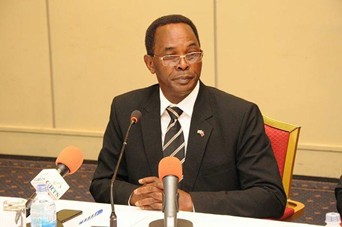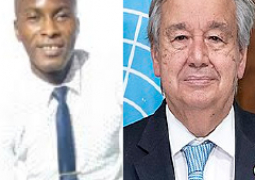
From the Russian-Ukraine war which has its toll on the world economy, the world is again faced with another economic war which will have a profound impact on world trade. The new United States of America tariff policies intended to protect the U. S. industry and business are having a knock-on effect globally, particularly for vulnerable African economies like the Gambia among others. China has reacted to these measures and other countries in the world. Smaller countries without stronger industrial bases, such as many African countries will suffer due to rising import costs. These U.S. tariff policies, even though it is right to protect the National interest, will have diplomatic implications and economic consequences on the global stage. Many countries have started to reexamine their relations with the U.S. and how to find answers to moving forward with economic progress and sustainability. In the light of this global trade tensions and uncertainties about the future of international cooperation, it is imperative for the Gambia to develop a strategic economic and diplomatic framework for a more beneficial and prosperous society. This calls for a rethink on the state of the country’s diplomatic service and economic management. This is an era of economic diplomacy. The country’s lack of economic diplomacy foresight leads to missed opportunities in the international environment. It is time for a paradigm shift in the country’s foreign policy from the conduct of traditional diplomacy which does not bring tangible development goals to the country. The Foreign Minister himself lamented about the shortfalls in the outlook and structure of the country’s Missions abroad. It could be concluded that lack of capacity and limited knowledge of diplomacy harms the Foreign Service of the country. In the drive to prosperity for the country, the need for the pursuit of economic diplomacy, where embassies and envoys focus on mobilizing investments, projects, development assistance, trade and economic opportunities is the way to move the country forward. The Gambia should position itself as a hub for business and international cooperation in the region. Other missed opportunities are in the oil and fisheries sectors. Many Gambians have lamented the lack of transparency and proactive diplomatic engagements regarding the country’s offshore oil blocks and maritime resources, leading to exploitation and depletion. These are sovereign wealth that cannot be sidelined in the conscience of authorities. It is therefore hoped that economic diplomacy will be pursued to restore the full rights and ownership of the country’s resources to the benefits of the citizens. If foreign policy is based on the national interest as demonstrated by the American tariff policies which shook the world then it is in the supreme interest of the Nation to resolve the oil and fisheries issues in accordance with the wishes and aspirations of Gambians. These concerns are already in the political discourse and the sooner these sectors remain protected by the government the better for a peaceful and prosperous country. In economic challenges, the country continues to struggle with high import dependency, a weak industrial base, high youth unemployment, and currency depreciation. There is the urgent need therefore, for the Gambia to redefine its diplomacy to align with economic priorities and to focus on trade promotion, investment attraction, industrialization support, agriculture development and resource sovereignty. The Gambia's diplomatic structure must be looked at again because it cannot largely remain around traditional roles. It must have the capacity to drive development opportunities home. In reforms, a performance based evaluation of embassies and honorary consuls is serious advice if the Gambia wants its foreign policy machinery to be fit for purpose in a highly competitive global environment. The government should continue to protect the local industry and empower Gambian owned business enterprises in both the national and supreme interest of the Nation. This is the era of economic diplomacy. We must therefore, fasten our belts in the process of National development. The Chinese President HE X JINPING in an address to the Communist Party said, “hard work makes a country flourish and empty talks harms a country.” HE Adama Barrow in a public address said, 2025 should be a year of results. The war on tariffs and economic diplomacy is food for thought for the country.
BY : D M. Badjie
Political Scientist / Commentator
Read Other Articles In Opinion





